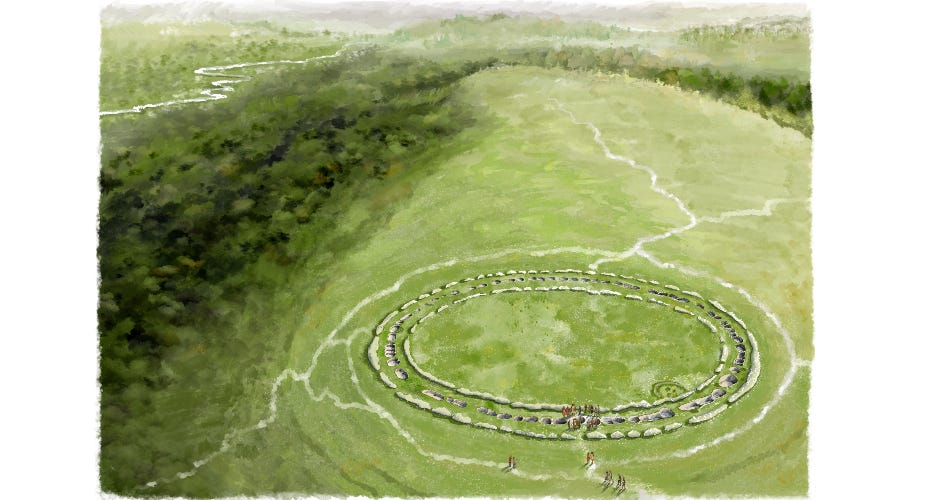Ancient Game Inspires Modern Quantum Physics Breakthrough
Across human history, the timelessness of board games has served as a bridge between epochs, a symbol of unity and shared experiences.

[Aug.17, 2023: Michael Jensen, University of Copenhagen]
Mancala is the oldest board game still widely played today. It is popular around the world but very much so in Africa. (CREDIT: Creative Commons)
In the vast expanse of human history, the timelessness of board games has served as a bridge between epochs, a symbol of unity and shared experiences across civilizations. One such game, with roots stretching back to as early as 6000 BCE in Jordan, is mancala. It's a game many are familiar with — moving a sequence of stones between pits on a wooden board, aiming to get all the stones into the final pit. Simple, yet engrossing.
Yet, who would have thought this age-old pastime could intertwine with the cutting-edge field of quantum state engineering? Recent findings, as published in AVS Quantum Science, shine a spotlight on this incredible interdisciplinary overlap.
Researchers from Tulane University introduced a fascinating modification of the solitaire version of mancala, dubbing it ManQala. But, instead of playing for leisure, they used it as an algorithmic tool to explore the intricacies of quantum state engineering.
The objective of this high-level field of quantum physics is fairly straightforward, yet the processes to achieve it are anything but. As Ryan Glasser, an associate professor of physics at the School of Science and Engineering, puts it, the central conundrum is “what do I need to do to get my quantum system to be in the state I desire?”
Related Stories
At a glance, the comparison between mancala stones and quantum particles might seem incongruous. But there's a method to this seeming madness. Just as one would want the stones in a particular pit in mancala, researchers strive to make quantum particles attain specific positions or energy levels. This is essential for both the study of these particles and the functionality of quantum computers.
However, this comparison doesn't come without its nuances. "Quantum things are, generally speaking, very delicate and difficult to control," Glasser emphasizes, hinting at the fragile nature of quantum states. "The system can fall apart quickly and make you lose any quantum advantage you have or desire to have."
Interestingly, while there are existing methods within quantum physics to tackle these challenges, simulations derived from the ManQala game showcased greater effectiveness. Glasser excitedly notes, “We see advantages already, even in these simplified systems of three stones and three pits.”
In a new study, researchers at Tulane University apply a modified solitaire version of mancala, which they call ManQala, to quantum state engineering. (CREDIT: IStock Images)
This groundbreaking research joins the ranks of a burgeoning field called quantum games. Here, age-old games like sudoku, checkers, and tic-tac-toe are dissected and reimagined through the lens of quantum physics. What ensues is a tantalizing blend of familiar gameplay and quantum rules.
For instance, in the quantum realm, when particles are in adjacent “pits”, they have the potential to interfere with each other. This interference creates a plethora of additional moves in ManQala. As Glasser intriguingly reveals, “you can win the game if you use quantum rules where you wouldn’t be able to if you use classical rules.”
Example game boards for (a) Tchoukaillon (a solitaire variant of mancala) and its direct quantum analog ManQala in (b). Here, we show both boards with N = 3 stones and M = 3 lattice sites, and we represent sowing with arrows (which become two-site unitary operators in ManQala). (CREDIT: AVS Quantum Science)
The implications of this study go beyond mere simulations. Expressing optimism, Glasser anticipates real-world applications for ManQala. “It's in the realm of theory currently, but I think it's definitely doable experimentally,” he shares.
Glasser, drawing from his experience with the IBM Quantum cloud computer, envisages joining forces with fellow researchers, Thomas Searles from the University of Illinois Chicago, and Brian Kirby, an adjunct professor of physics at Tulane, to further explore this intersection of ancient game mechanics and modern quantum science.
Numerical simulation of game-inspired quantum state engineering. Given the initial state |0,1,2⟩, the average (expected) bosonic distance of observing the target state |3,0,0⟩ for different quantum state engineering strategies computed using 1000 stochastic trajectories each in QuTiP. (CREDIT: AVS Quantum Science)
As the worlds of ancient board games and avant-garde physics converge, the results promise not just advances in quantum computing, but a profound testament to human ingenuity.
From the dusty dunes of Jordan 8,000 years ago to state-of-the-art research facilities today, ManQala stands as a testament to the enduring power of human curiosity and our unyielding desire to understand the universe.
For more science and technology news stories check out our New Discoveries section at The Brighter Side of News.
Note: Materials provided above by University of Copenhagen - Faculty of Science. Content may be edited for style and length.
Like these kind of feel good stories? Get the Brighter Side of News' newsletter.
Joseph Shavit
Head Science News Writer | Communicating Innovation & Discovery
Based in Los Angeles, Joseph Shavit is an accomplished science journalist, head science news writer and co-founder at The Brighter Side of News, where he translates cutting-edge discoveries into compelling stories for a broad audience. With a strong background spanning science, business, product management, media leadership, and entrepreneurship, Joseph brings a unique perspective to science communication. His expertise allows him to uncover the intersection of technological advancements and market potential, shedding light on how groundbreaking research evolves into transformative products and industries.



